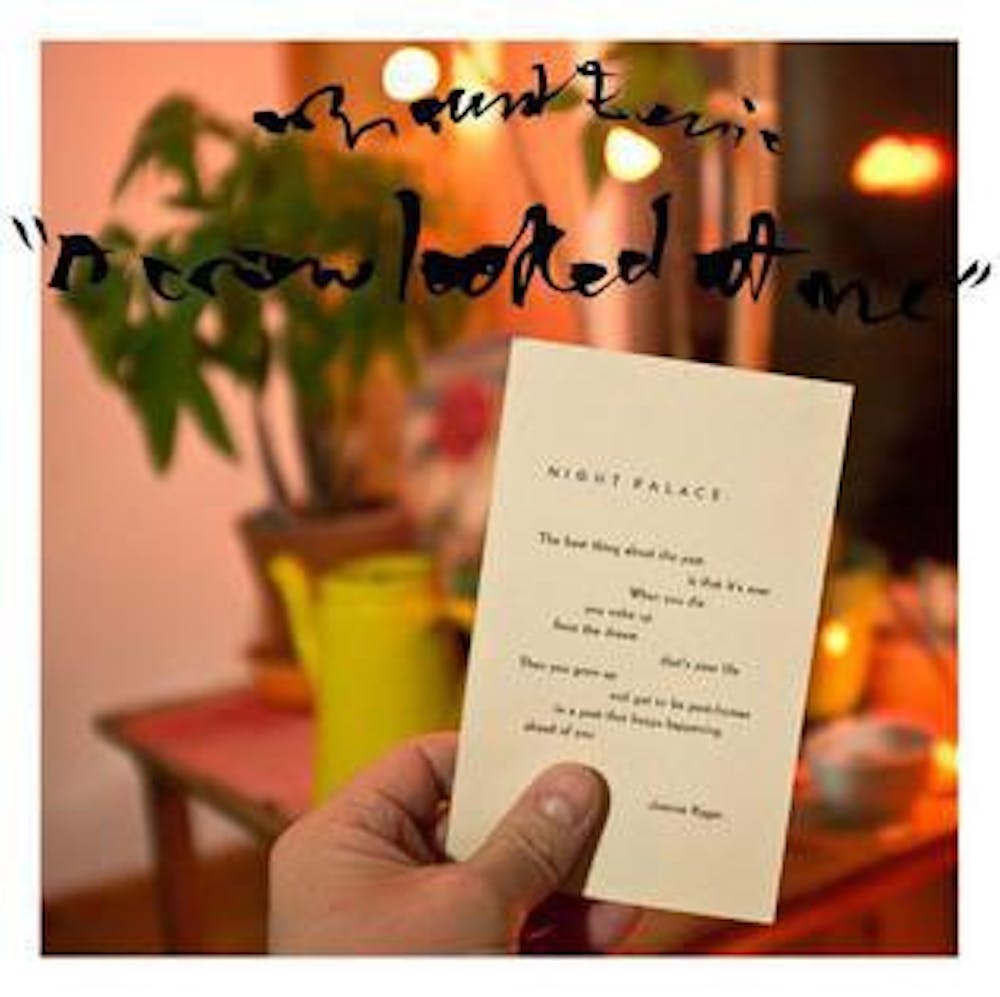As the fourth deadliest cancer in the United States, pancreatic cancer is a disease that spreads silently and kills 70 percent of patients within a year after diagnosis. In many ways, a pancreatic cancer diagnosis is little more than a warning of the inevitable — a chance for an individual to come to terms with their demise. This fact became all-too-apparent to Mount Eerie singer-songwriter Phil Elverum, who is the principal member of the band. In spring 2015, his wife Geneviève was diagnosed with the disease in at the age of 34 and passed away the following year, leaving behind a hollow widower and an infant daughter. It is this tragedy that wholly occupies the subject matter of “A Crow Looked At Me.”
Told entirely from the perspective of Elverum himself, “A Crow Looked At Me” never strays beyond immensely personal anecdotes from the days, weeks and months following Geneviève’s death. These small stories are blunt in their telling, reading more as a confessional than any kind of poetic craft — and for good reason. On “Ravens,” Elverum chokes out a confession of grief, speaking of a night he spent “Crying on the logging roads with your ashes in a jar / Thinking about the things I’ll tell you / When you get back from wherever it is that you’ve gone / But then I remember death is real.” Though his diction is simple, Elverum’s words more accurately provoke the sobering isolation of life after tragedy than any grandiose metaphor might.
This feeling of isolation serves as a motif across all of Elverum’s stories, ranging from a lurking feeling in the back of his mind to an all-encompassing dread which entraps him in his moments of weakness. “My Chasm” addresses the isolation created by Geneviève’s death, which looms behind Elverum at all times, giving him “The power to turn a grocery store aisle into a canyon of pity and confusion / And mutual aching to leave.” Isolated from those he interacts with daily, the shadow of Geneviève’s passing draws him away from even the most mundane of functions.
There is little more at play within “A Crow Looked At Me” beyond the tragic confession of Elverum’s lyrics. An acoustic guitar appears on every track, but exists only to provide a faint melody to Elverum’s speech — a soft whisper crying alongside him. On some tracks, a piano delicately rings amidst the measured strumming, providing brief moments of comfort before falling out and returning the listener to the focused isolation of Elverum’s lone guitar.
The final production component on “Crow” is a looping sample of a clicking life support machine that fades in and out on many tracks — a small detail that is intentionally easily missed. The machine appears when Elverum addresses the disease that killed his wife, initially blending into the strumming of his guitar with its rhythmic beating. But as the guitar falls away and only Elverum’s choked vocals remain, the life support machine has a distinct presence — an ever-present reminder of the sickness which now dominates Elverum’s mind.
In its spoken word singing, jaded storytelling and nearly nonexistent instrumentation, “A Crow Looked At Me” portrays feelings of grief and life after tragedy with shocking realism. Real death is not the burning passion of grandiose posthumous rock ballads. Real death exists in the silence between the jaded chords of Elverum’s guitar — it exists in the horrific feeling of a clicking life support machine falling away.







